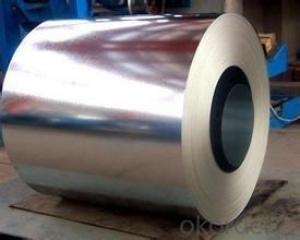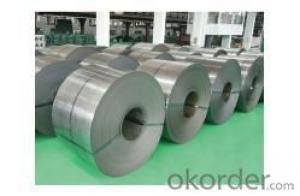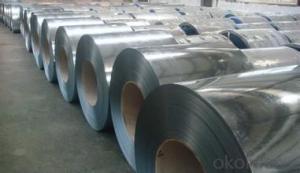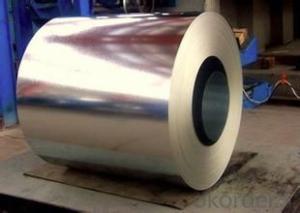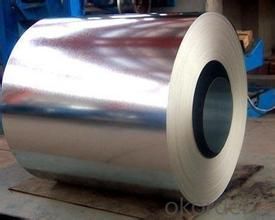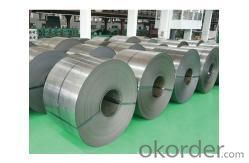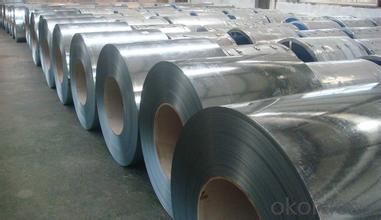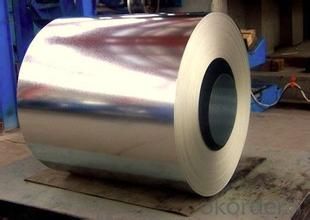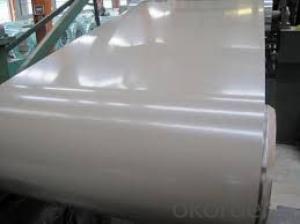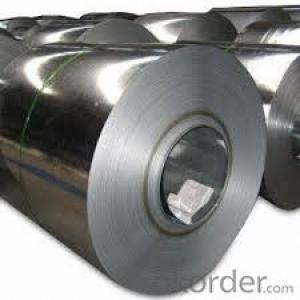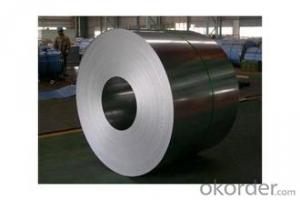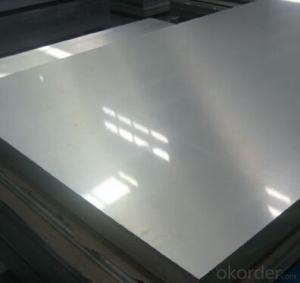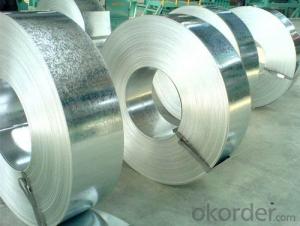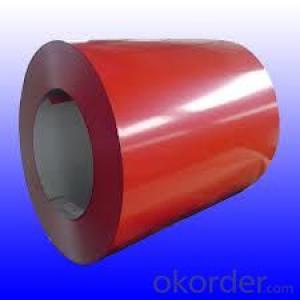hot-dip galvanized/ Aluzinc steel in good Quality
- Loading Port:
- Tianjin
- Payment Terms:
- TT OR LC
- Min Order Qty:
- 100 m.t.
- Supply Capability:
- 5000000 m.t./month
OKorder Service Pledge
OKorder Financial Service
You Might Also Like
Description:
Hot-dip galvanized steel coils are available with a pure zinc coating through the hot-dip galvanizing process. It offers the economy, strength and formability of steel combined with the corrosion resistance of zinc. The hot-dip process is the process by which steel gets coated in layers of zinc to protect against rust. It is especially useful for countless outdoor and industrial applications.
Production of cold formed corrugated sheets and profiles for roofing, cladding, decking, tiles, sandwich walls, rainwater protective systems, air conditioning duct as well as electrical appliances and engineering.
Specification:
1.Mateials:SGCC,DX51D / DX52D /S250,280GD
2.Size:width:600-1250mm(900mm,1215mm,1250mm,1000mm the most common)
thickness:0.15-2.0mm
length:1000-6000mm,as your require
3.Zinc coating :60-180g( as required)
4.Coil id:508mm
5.Coil weight: 3-5MT(as required)
6. Surface:regular/mini/zero spangle, chromated, skin pass, dry etc.
Applications :
Galvalume Coil widely used for roofing products, It is also the ideal base material for Prepainted Steel Coil.
1. roofing
2. gutters
3. unexposed automotive parts
4. appliances
5. furniture
6. outdoor cabinetry
Images:
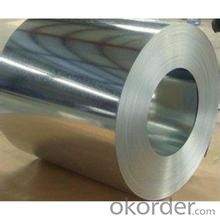
- Q: What are the different types of steel coils available?
- There are several different types of steel coils available, each with its own specific properties and uses. 1. Hot Rolled Steel Coils: These coils are produced at high temperatures and are commonly used in applications that require a smooth and polished finish, such as automotive parts, construction materials, and machinery. 2. Cold Rolled Steel Coils: These coils are processed at lower temperatures to improve the surface finish and dimensional accuracy. They are widely used in industries such as automotive, appliances, and electronics, where a high level of precision is required. 3. Galvanized Steel Coils: These coils are coated with a layer of zinc to protect the underlying steel from corrosion. They are commonly used in construction materials, roofing, and automotive parts that are exposed to harsh environmental conditions. 4. Stainless Steel Coils: These coils are made from a combination of iron, chromium, and other elements to provide excellent corrosion resistance and high strength. They are widely used in applications that require hygiene, such as food processing equipment, medical instruments, and kitchen appliances. 5. Electrical Steel Coils: These coils are specifically designed for applications that require magnetic properties, such as transformers, electric motors, and generators. They have low core losses and high permeability to efficiently transfer electrical energy. 6. Pre-painted Steel Coils: These coils are coated with a layer of paint or other protective coatings to enhance their aesthetic appeal and provide additional protection against corrosion. They are commonly used in the construction industry for cladding, roofing, and siding. 7. Tinplate Steel Coils: These coils are coated with a thin layer of tin to prevent corrosion and provide a barrier against moisture and oxygen. They are widely used in the packaging industry for cans, containers, and other food or beverage packaging. These are just a few examples of the different types of steel coils available in the market. Each type has its own unique properties and applications, making them suitable for various industries and purposes.
- Q: What are the different coil leveling machine configurations used for steel coils?
- There are several different coil leveling machine configurations that are commonly used for steel coils. These configurations vary based on the specific requirements of the steel coils being processed. One common configuration is the four-high leveling machine. This machine consists of four leveling rolls arranged in a stack. The steel coil passes through these rolls, which apply pressure to flatten and level the material. The four-high configuration is often used for thicker and heavier steel coils, as it provides a higher level of pressure and control during the leveling process. Another configuration is the six-high leveling machine. This machine has six leveling rolls arranged in two stacks of three rolls each. The steel coil passes through the first stack, where the initial leveling is performed, and then through the second stack for further refinement. The six-high configuration is often used for thinner steel coils, as it allows for a more precise and gentle leveling process. In addition to these configurations, there are also combination leveling machines available. These machines combine leveling with other processes, such as slitting or shearing, to provide a more comprehensive solution for steel coil processing. Combination machines are often used in applications where multiple steps are required to achieve the desired final product. Overall, the choice of coil leveling machine configuration depends on factors such as the thickness and weight of the steel coil, as well as the desired level of precision and efficiency. Manufacturers and processors must carefully evaluate their specific needs and select the appropriate configuration to ensure optimal results in the steel coil leveling process.
- Q: If steel content is too cheap, what content should I be looking for? I don't think I could find something like a VG-10 here...
- Confusion Sucks. Why are you going into all this crap over the content of steel in the knives, your only confusing yourself. I recommend you go to a chef's supply or a good store that sells chef's utensil's and knows what he is talking about, and look at something that is comfortable for you. Chris
- Q: I want to buy steel. My problem is i purchase it from a middle man, so i need to know what MIld steel is. What it's real name or specifications is/are. I dont want to end up purchasing Black steel or other stuff i can sell or use...
- Mild okorder /... Seamless usually refers to a method for making tubing, as opposed to the alloy of steel. Seamless tubing is usually drawn, rather than made from a sheet welded into the form of a tube.
- Q: How hot does steel have to get before it will melt?
- Type your query into Yahoo! Search or other search engines to get the answer: It depends, since steel usually has different metals added for various properties (strength, corrosive resistance, etc.)
- Q: what is the densest type of steel ? what is its density ?what is its tensile strength .
- Agree okorder . If you are really looking for higher density, go to copper or tungsten.
- Q: does regular steel rust? or is it all the same.
- There are dozens of types of steels, some stainless and some not. They differ a lot in their chemical composition and in how they're made (especially heat treating methods). They all vary in their strength, working properties and corrosion resistance. Regular steel (technically carbon steel--mostly iron, with a little bit of carbon) rusts quite badly if unprotected and in the right environmental conditions i.e. humidity/moisture. The iron in regular steel reacts with oxygen to form iron oxide--the orange/red stuff we call rust. Iron oxide is a loose and porous material which provides no protection to the underlying steel, which is why rusted regular steel will continue to rust. Stainless steel, in addition to containing iron and carbon, contains chromium as a component--and it's the chromium that is important for corrosion protection. To be fair, even stainless steel rusts but what happens is that it's the chromium that reacts with oxygen to create a microscopically-thin layer of chromium oxide. This layer is very tough and actually protects the uncorroded steel, preventing further corrosion. Broadly speaking, the higher the chromium content, the more corrosion resistant the stainless steel.
- Q: What are the common tests performed on steel coils for quality assurance?
- Steel coils undergo various tests to ensure their quality and compliance with industry standards and customer needs. Dimensional inspection is a prevalent test that measures the length, width, and thickness of the coils to verify their specified dimensions. Any deviations in dimensions can indicate potential quality issues. A thorough visual inspection is also conducted to identify defects and surface imperfections like scratches, dents, or rust. This examination is crucial to identify any visual flaws that may affect the coils' performance or appearance. Furthermore, mechanical tests are carried out to assess the strength and durability of the steel coils. Tensile tests measure the maximum force the steel can withstand before breaking, determining its tensile strength, yield strength, and elongation properties. Another commonly performed mechanical test is the hardness test, which determines the steel's resistance to indentation, indicating its strength and toughness. These tests are typically conducted using methods like Rockwell, Brinell, or Vickers. Corrosion resistance is also evaluated as a vital aspect of steel coil quality. Tests such as salt spray or humidity tests simulate harsh environmental conditions to assess the steel's ability to resist corrosion. Lastly, chemical composition analysis is performed to ensure that the steel coils contain the necessary elements in the correct proportions. This analysis verifies that the steel meets the required chemical properties, which significantly impact its performance and suitability for specific applications. In summary, these common quality assurance tests guarantee that steel coils meet industry standards, customer requirements, and are suitable for their intended use.
- Q: Hi, does anyone know where i can find more about this topic ? fire resistant steels for structural applications. thanks
- Steel okorder /
- Q: What are the common defects found in uncoiled steel coils?
- Some common defects found in uncoiled steel coils include edge waves, center buckles, coil breaks, surface defects such as scratches or dents, and variations in thickness or width.
Send your message to us
hot-dip galvanized/ Aluzinc steel in good Quality
- Loading Port:
- Tianjin
- Payment Terms:
- TT OR LC
- Min Order Qty:
- 100 m.t.
- Supply Capability:
- 5000000 m.t./month
OKorder Service Pledge
OKorder Financial Service
Similar products
Hot products
Hot Searches
Related keywords
